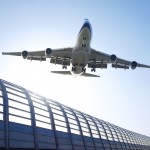U.S. aviation regulators imposed unusual speed and altitude restrictions on St. George, Utah-based SkyWest Inc., a regional airline flying for several mainline carriers, after one of its planes temporarily plummeted out of control in April.
The Federal Aviation Administration said Tuesday that some of SkyWest’s regional jets can’t fly higher than 35,000 feet and must maintain minimum speeds. If aircraft don’t fly fast enough, they lose lift and can plunge, a scenario that is one of the leading causes of accidents around the world.
The plane lost 12,000 feet of altitude during a flight from Denver to Oklahoma City, according to the agency. It landed at its destination without incident.
“The FAA took this action following an event in which preliminary information indicates a SkyWest crew stalled an aircraft at cruising altitude,” the FAA said in an e-mail statement. A stall refers to a loss of lift on the wings.
 SkyWest, based in St. George, Utah, flies under contract for four U.S. airlines, including United Continental Holdings Inc., Delta Air Lines Inc. and American Airlines Group Inc., according to its website.
SkyWest, based in St. George, Utah, flies under contract for four U.S. airlines, including United Continental Holdings Inc., Delta Air Lines Inc. and American Airlines Group Inc., according to its website.
The FAA’s moves were “a sweeping and arbitrary reaction that was not fully explained and we believe is not supported by facts,” SkyWest spokeswoman Marissa Snow said in an e-mail.
SkyWest disputed the FAA’s account of the event, saying there was no stall and the plane descended 4,000 feet because of “less than optimal speeds.” The “crew responded appropriately,” Snow said. The company has been complying with the FAA’s restrictions since June 22 with no disruptions to its service, she said.
The FAA proposed fining SkyWest more than $1.2 million on Friday for unrelated maintenance lapses on its fleet. The airline has 30 days to respond.
The incident that prompted the latest FAA action occurred April 23 when a Bombardier Inc. CRJ700 descended rapidly from its cruise altitude at 39,000 feet (11,887 meters) to 27,000 feet, according to the FAA. Planes can stall more easily at higher altitudes where the air is thinner.
The speed and altitude restrictions don’t apply to SkyWest’s fleet of Embraer SA aircraft.
Several fatal accidents around the world in recent years have resulted from inadvertent stalls, including the Feb. 12, 2009, crash of a Colgan Air flight near Buffalo, New York, that killed 50 people. Colgan was then owned by Pinnacle Airlines Corp.
Was this article valuable?
Here are more articles you may enjoy.


 What Analysts Are Saying About the 2026 P/C Insurance Market
What Analysts Are Saying About the 2026 P/C Insurance Market  Judge Awards Applied Systems Preliminary Injunction Against Comulate
Judge Awards Applied Systems Preliminary Injunction Against Comulate  A 10-Year Wait for Autonomous Vehicles to Impact Insurers, Says Fitch
A 10-Year Wait for Autonomous Vehicles to Impact Insurers, Says Fitch  Trump’s Repeal of Climate Rule Opens a ‘New Front’ for Litigation
Trump’s Repeal of Climate Rule Opens a ‘New Front’ for Litigation 

